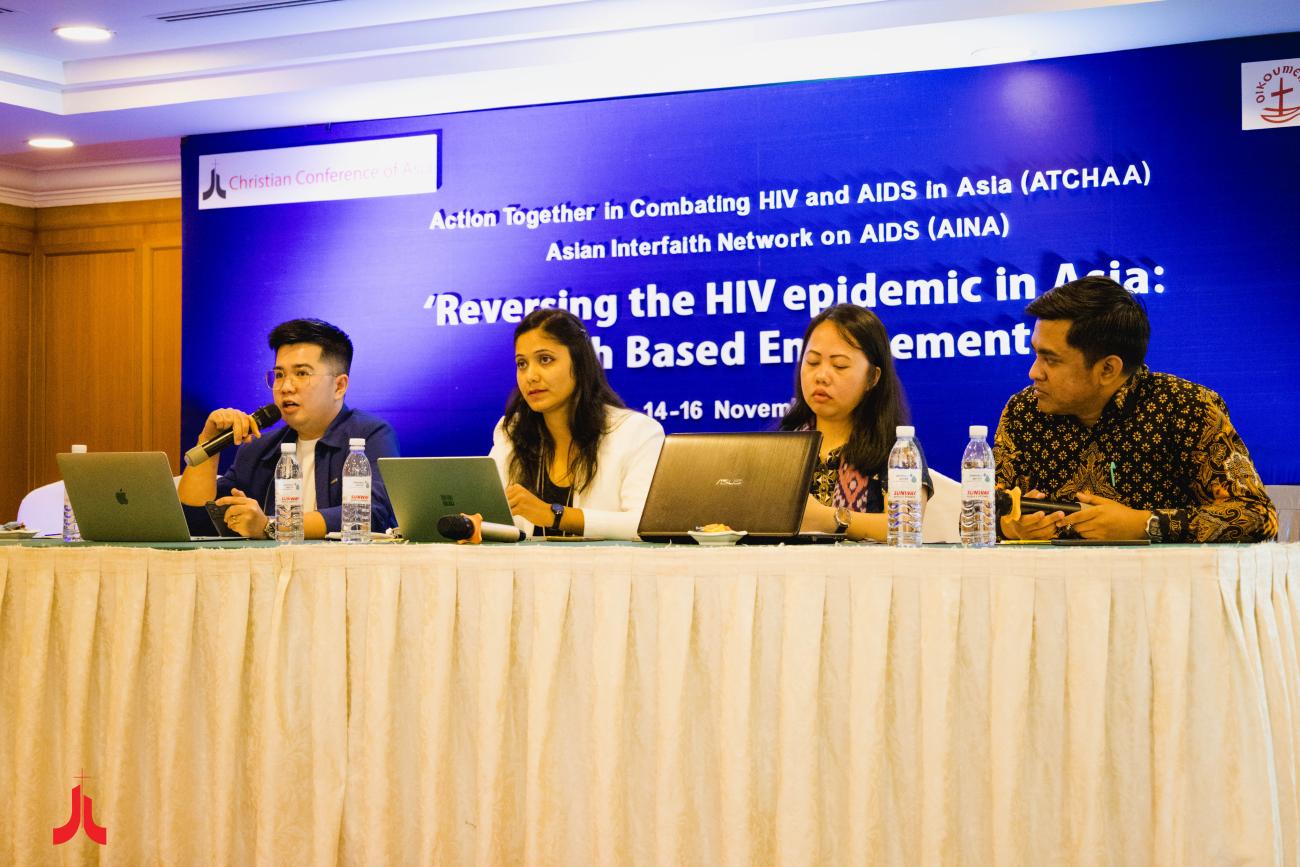Asian youth leaders share best practices and challenges on HIV at regional interfaith conference

Panel Discussion on ‘Trends in HIV Prevalence Among Youth in Asia’
Phnom Penh, Cambodia: The Asian interfaith conference on ‘Reversing the HIV Epidemic’ drew attention to the voices of young people working in the area of health and healing from across Asia.
During a panel discussion on ‘Trends in HIV Prevalence Among Youth in Asia’, four youth leaders from various faith communities in Asia shared insights into the challenges faced in addressing HIV and AIDS and proposed strategies to strengthen regional responses.
Ronan James Penuela, a medical nurse from the Philippines and Project Officer at Youth Voices Count, introduced the rising trend of HIV prevalence among Filipino youth, highlighting gaps in healthcare education. He noted that inadequate training leads to healthcare professionals being insufficiently sensitised, which often results in discrimination and a lack of preparedness in managing HIV cases.
Emphasising the significance of faith-based HIV treatment and care, James Penuela stated, “Medical care should complement faith-based care because this helps improve adherence to medication, well-being and mental health, and health-seeking behaviour, ensuring holistic care of the patient”.
Pooja Mishra, National Youth Coordinator for Youth Lead Voices (YLV) and General Secretary of the National Coalition of People Living with HIV in India, outlined the situation of HIV and AIDS epidemic in India. According to Ms Mishra, young Indians aged 15 to 29 comprise 31% of those affected in the country, and India has the second-highest number of people living with HIV (PLHIV) globally.
She highlighted YLV’s flagship programme, Positive Speaking Training, which has trained over 300 young PLHIV in public speaking, storytelling, and communication skills to inspire change, combat stigma, and advocate for rights and policy reforms through social media.
“As young people living with HIV, we seek support, understanding, and empowerment from faith-based organisations. We believe that faith based health organisations, rooted in values of compassion, care, and justice, have a unique opportunity to make a meaningful difference in our lives”, said Ms Mishra.
Shedding light on the HIV and AIDS situation in Indonesia, Ria Claudia Watulingas, a National Committee member of the Indonesian Student Christian Movement, identified key factors driving high HIV prevalence among young Indonesians, which include risky behaviours, limited knowledge, restricted access to healthcare, stigma and discrimination, and social and cultural influences.
Ms Watulingas further added, “The trend of HIV prevalence among Indonesian youth is a serious concern, but it’s not without hope. By addressing the root causes of HIV transmission and focusing on prevention, education, and access to healthcare, we can make significant progress in reversing this trend. It will require continued collaboration across governments, NGOs, churches and communities to ensure that youth in Asia are protected from HIV and given the tools they need to lead healthy lives”.
Zooming in on the broader statistics, Dr Albertus Dimas Aji Putra, a young medical doctor and Director of Bungsu General Hospital in Bandung, Indonesia, provided a detailed account of the ground realities of HIV in the country.
Dr Aji Putra identified key challenges, including patients lost to follow-up during treatment, stigma rooted in cultural, religious, and societal taboos, and restrictive regulations that hinder early education and awareness. He also highlighted how lifestyle factors contribute to the heightened vulnerability of individuals to HIV.
The panel emphasised the urgent need to tackle stigma, improve education, and promote interfaith collaboration to empower youth and strengthen HIV response efforts across Asia.










